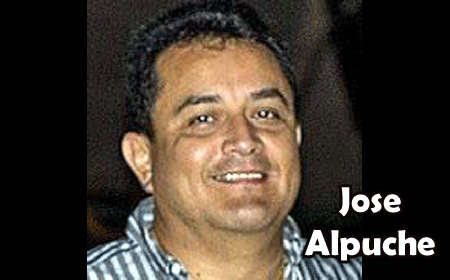BELIZE CITY, Mon. Jan. 18, 2016–On Friday, January 15, Deputy Prime Minister Gaspar Vega and his Chief Executive Officer, Jose Alpuche, in the Ministry of Agriculture, returned from Guyana, where they held meetings with Guyana’s Vice President and Minister of Foreign Affairs, as well as the CEO and the chairman of the Guyana Rice Development Board to ensure food security for Belize, where rice is concerned, in case a shortfall in rice production were to occur.
Alpuche told Amandala that there wasn’t any agreement signed, but that they renewed the two countries’ longstanding understanding that in case of a shortfall in Belize’s rice supply, we would import from Guyana. Such a scenario occurred in 2014, when there was a shortfall because of the severe rains, and at that time Belize turned to its sister CARICOM country, Guyana, in order to import enough rice to offset its rice shortage.
Even though there are other countries from which Belize could import rice that are located closer to Belize, such as Mexico, Guyana was selected as a rice supplier because Belize would be exempted from paying duties, since both countries are a part of CARICOM, Alpuche said.
Sergio Garcia, an international consultant, told Amandala that under the CARICOM Single Market Agreement, Belize cannot sign a bilateral agreement with Guyana, since Suriname also produces rice. Garcia went on to say that the procedure is that Belize would inform the Council for Trade & Economic Development of CARICOM, and the amount of rice needed by Belize may be supplied by both Guyana and Suriname.
Alpuche clarified that the rice will be “sourced from within CARICOM” and that there is an “inherent possibility” that the rice can come from Suriname, but more than likely the rice would be provided by Guyana. Alpuche said that in their meetings with Guyana’s authorities, no particular amount of rice was agreed upon, since the quantity of rice to be imported would depend on the size of the shortfall; however, there would still be a need to conduct a risk analysis, which would be done by the Belize Agriculture Health Authority (BAHA).
Francisco Gutierrez, Technical Director of the Plant Health Department of BAHA, said, “The analysis determines what are the lists of pests associated with the commodity from Guyana and proposes what mitigation measures would become our condition of importation for the particular commodity, and we put the measures in the import permit.”
The inspection can take from three months to a year; however, once the assessment is done, the trade is open, Gutierrez said.
Alpuche said that the permit would be granted to the Belize Marketing & Development Corporation to import the rice.
As we know, in the latter part of 2015, local businessman Jitendra Chawla also known as “Jack Charles,” had embarked on a commercial effort to import rice into Belize from Guyana, which he intended to sell at much lower prices than locally produced rice. A shipment of rice purchased by Chawla, worth approximately BZE $70,000, arrived in Belize for the Christmas season, but Belize authorities refused to hand over the rice to Chawla.
Chawla, represented by attorney Leroy Banner, took the government to court; however, in the end, the court ruled that Chawla was in violation of Section 27 of the BAHA Act.
CARICOM Secretary-General, Ambassador Irwin LaRocque, was in Belize earlier this month to meet with Prime Minister Dean Barrow, who was appointed as the Chairman of CARICOM. LaRocque took the opportunity to weigh in on the matter, saying that sanitary and phytosanitary (SPS) issues, which govern the safety and health standards of food imports “cannot and ought not to be used as a protective mechanism and [permits] ought not to be withheld based on protecting a particular sector…”

